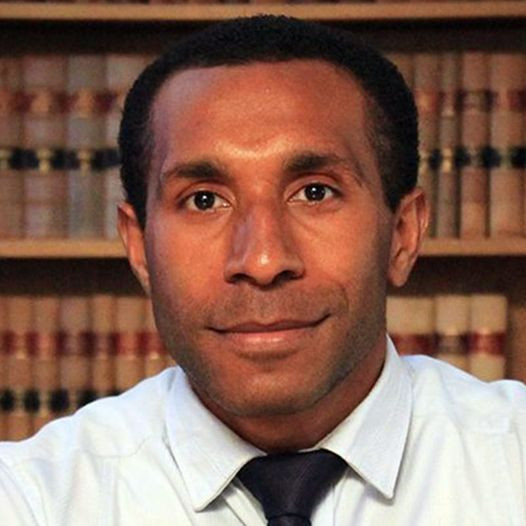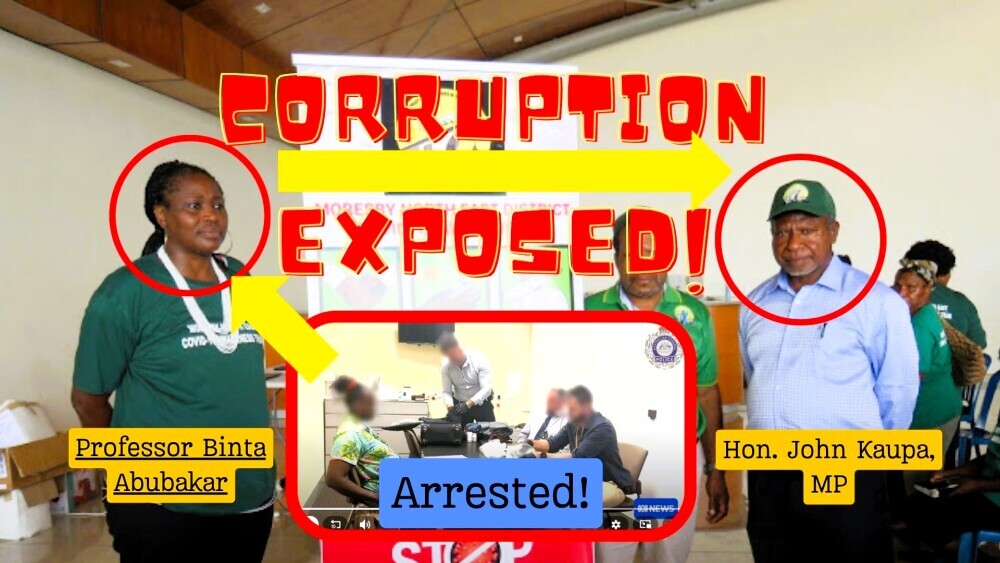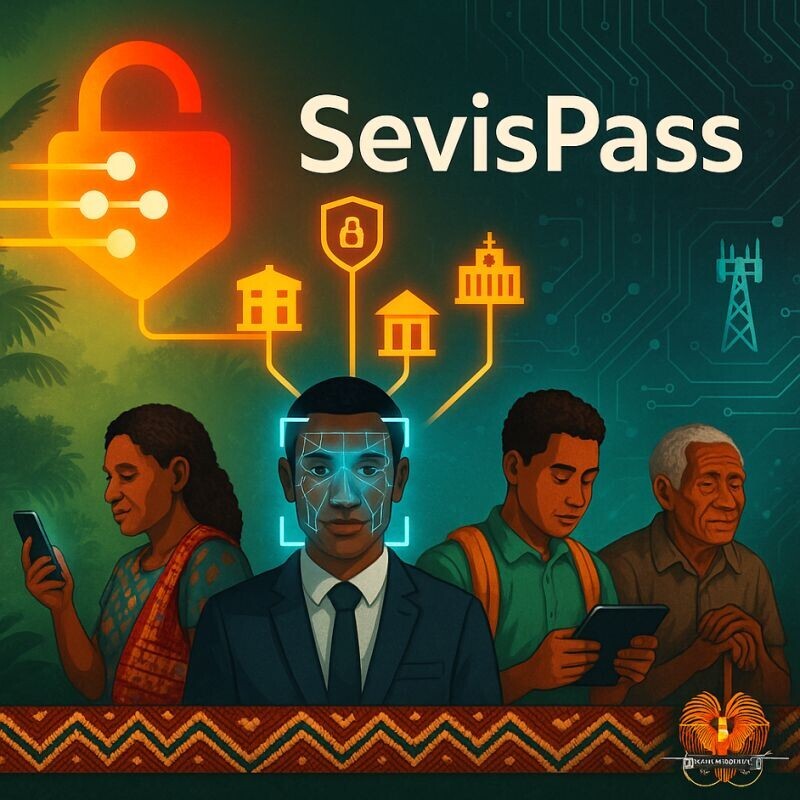
By: Dr Bal Kama - a Constitutional Lawyer
KEY ISSUES WITH PNG-US SECURITY AGREEMENT AS LEAKED: DELAY SIGNING UNTIL FIXED
__________________ I am writing this here instead of an article given time limitation and for the many PNG audience currently interested in this subject. PNG and US governments are said to sign an unprecedented security agreement for US forces to be operating in PNG (possibly this week!). A draft agreement was leaked last week which was not denied by either governments. Unless the leak document is false, the provisions as they are presents the following four (4) issues the Marape Government and the State of PNG needs to consider (additional to those already raised by others).4 KEY ISSUES WITH PNG-US SECURITY AGREEMENT AS LEAKED
1. Diminishing Sovereignty – Issue with Articles 3, 9
The draft provisions invites a foreign military access to PNG infrastructure, set up base, embed directly or indirectly within PNG agencies, and to strategise their geo-political interests without any legal control of PNG. That gives rise to various issues, first of which is legally immunity. It essentially surrenders a foundation of PNG sovereignty. The two often common pillars of state sovereignty are political and legal. A country needs to be in full control of these pillars to proclaim itself as a Sovereign nation. The founding fathers of PNG realized this earlier on in early 1975. The draft Constitution for an independent PNG was presented to the legally and colonially created House of Assembly to be accepted as the country’s Constitution. However, the forefathers refused that arrangement and created themselves a body called the Constituent Assembly and passed the Constitution through that Constituent Assembly. It was a body that did not have any legal basis as far as the colonial statute was concerned. That is, it was an illegal body. Yet, the Speaker of the House of Assembly that spearheaded the formation of the Constituent Assembly was adamant that the Constituent Assembly was necessary to “break any ties that may exist between Papua New Guinea and Australia…so that we may draft our own legislation”. In this instance, the drafting and passing of the PNG Constitution. The reason for such an action was that the House of Assembly was a creature of the Australian Parliament under the PNG Act; hence, allowing it to enact the PNG Constitution and the provisional legislation in preparation for Independence would mean ‘the links to Australian law would not be clearly broken’. PNG cannot be truly sovereign because its legal roots will be draped in an Australian-created legal institution. Hence, the forefathers have to cut that link, despite its illegality under the colonial laws, in order to truly cement PNG’s legal sovereignty. The outcome was that the Constitution was ‘home-grown’ and ‘home-delivered’. Such was the extent the forefathers of this nation went to defend the sovereignty of the country. Governor Luther Wenge reminded PNG of these historic ideals in the 2005 Supreme Court case challenging the immunity granted to the Australian Federal Police (ECP Case). This US-PNG Security Agreement should also be viewed through these lenses and asked – is this Agreement chopping away some control by PNG politically and legally or constitutionally over activities within its territories by a foreign entity? If the answer is YES, even in the smallest bit, then the PNG government will need to reassess the Agreement. A constitutional challenge could also be launched which could be adverse to the PNG government as well as to US’ prestige and soft power image in PNG and the Pacific region (as the case for Australia in 2005).2. PNG could become a target in a War – Issue with Articles 3, 5
Bilateral relations of social, political and economic/trade are normal statecraft. Military relations are, however, not normal because they project certain threat perceptions and by doing, create alliances and identify potential enemies, either state or non-state actors. Hence, states are often cautious and carefully consider all aspects before entering into military bilateral relations. At the lower end of a military relation are simple exchanges and personnel training between two countries. At the higher and more serious end are use of facilities by the foreign force, having a base, operating forward military exercises, and having its strike weapons based in or passing through the host country. All of that becomes even more serious when the host country does not have any control over the activities of the foreign force within its territory and using its infrastructures. Why is that serious? Apart from the affront to sovereignty and constitutionality issues, a lack of effective control over foreign forces by the host country could result in the foreign force conducting adverse, aggressive, or counter actions against another state while inside the host country. It can be direct military actions or through espionage, and other forms of gaining strategic advantage. A basic example was the Pakistan-US defence agreement in which US assets operate in Pakistan to conduct operations in neighbouring countries. This will directly open the host country to becoming a theatre of threat and therefore will need to be neutralised. A recent 2022 example is Iraq where Iran bombed a military base in Iraq, accusing it of hosting US military personnel who used the base to enable adverse actions against Iran. Such retaliation risks the lives of innocent citizens of the host country. Based on the leaked US-PNG Agreement, this risk is evident. The leaked document allows for US to operate in PNG without any enforceable PNG control, which means they can potentially be based here and project military actions elsewhere targeting another State while on PNG soil. If that happens, it will ultimately render PNG a target of any retaliatory action from the third State.3. Diminishing morale and legitimacy for PNG justice, legal and security architecture/institutions – Issue Articles 3, 5 and 9
The entire justice and legal system, security architecture including military and police and border agencies are founded on the uncompromising believe that they are the sole authorities legitimately charged to enforce and subjugate ALL persons within the territory of PNG to PNG laws – either domestic or foreign. It is a linchpin in their morale and a source of public confidence in their operations – that they can reach anybody, anywhere, anytime within the territory of PNG. However, having a foreign force or a group of foreign citizens operating outside of this umbrella can undermine these institutions, creating negative perceptions that these institutions, despite their constitutional authorities and powers as enforcers of sovereignty, are at the whim of the government who can decide their limits. It can create the negative perception that there is in fact a higher, superior authority beyond the reach of the PNG laws and these institutions. Such perceptions can have negative implications on institutional legitimacy, morale and undermine the efforts made to build public confidence in the domestic institutions.4. US experience elsewhere in the world
The Agreement US intends to sign with PNG is similar to agreements US has with some other countries such as Japan, South Korea and those in the middle-east in which US has unimpeded access to certain infrastructures and have immunity from local laws. In the Pacific, US have unimpeded establishment in Guam and the Federated States of Micronesia. Now, what’s the difference with PNG? Simply, all these countries have a very different security and threat outlook and historical connection with the US. PNG does not. Japan surrendered to the US during WWII, South Korea is technically still at war with North Korea and US is the guarantor of security for certain middle east countries in their highly volatile conditions. PNG is none of that. So, any argument that such Agreement happened in other countries so therefore it can happen in PNG is completely misguided and seriously erroneous. It would disrespect PNG and suggests possible belittling.



